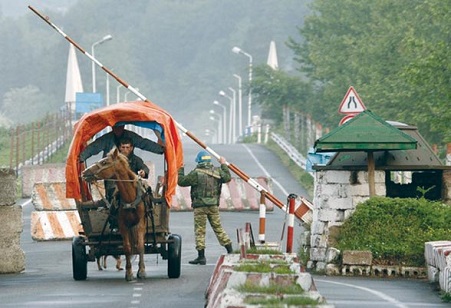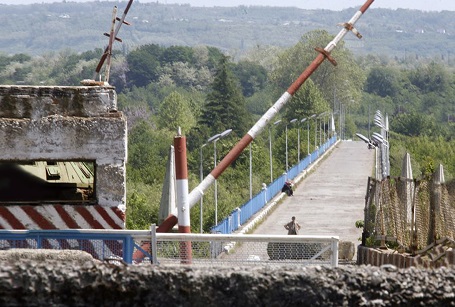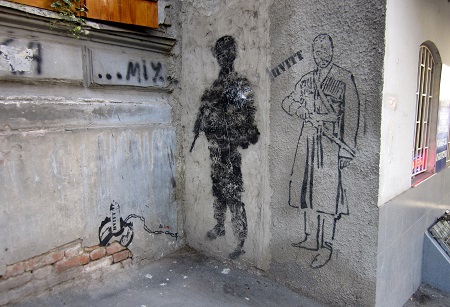Georgia’s Public Defender troubled by death of ill child from Gali district

Public Defender of Georgia is extremely saddened by the death of a teenage boy who was prevented from exiting breakaway Abkhazia and entering Georgian-controlled territory, where he was on his way to get vital medical treatment.
Twelve-year-old Levan Tsaava died yesterday after so-called Russian border guards demanded his family to obtain special documents approved by de-facto Abkhazia’s Federal Security Service (FSB) or pay a bribe of 500 GEL before they could pass through the so-called border to Georgia, stated news website www.Apsny.ge.
The family obtained the necessary documents but was again refused passage over the administrative boundary line, and shortly after the young man died from a serious illness.
Georgia’s Public Defender Ucha Nanuashvili released a statement today that highlighted such an event was not the first in the Gali district. He said several similar cases ended in fatalities in 2011 and 2012.
Nanuashvili emphasized this incident, which resulted in a fatality, gave rise to several problems in breakaway regions of Georgia which needed proper and immediate response.
He said four main problems occurred in Georgia’s occupied regions including poor health care in Gali district in Abkhazia, which meant locals distrusted the system and prompted them to seek alternative solutions, even in emergency cases as necessary care could not be provided.
Nanuashvili said the second main problem in Georgia’s breakaway regions was the spreading of information about ongoing events that were contradictory” or were "unverified”.
In the Gali district and generally in Abkhazia and South Ossetia, independent international human rights protection organisations are not operating, which would revealed contested facts and eliminate the possibility of manipulating information,” he said.
Another important problem that needed to be addressed was restriction of freedom of movement for people who lived in Georgia’s breakaway regions.
Nanuashvili said: "To pass a check point of the so-called border with Georgia, locals living in the Gali district need so-called Abkhazian passport and [a special] form. Part of the population does not have [this special] form and they are forced to cross the so-called border using bypass routes.”
The final problem mentioned by the Public Defender in his statement was the avoidance of responsibilities. Nanuashvili said according to international and European human rights standards, Georgian and Russian sides, as well as de-facto authorities, were "obliged” to protect the rights of people living in Abkhazia and South Ossetia regions, "but today all sides are denying liability”.
As a result of the above mentioned problems, we see violations of fundamental rights such as life, health, education and right of movement, discrimination and unlawful imprisonment in Abkhazia and South Ossetia,” Nanuashvili said.
The Georgian Public Defender offered advice about how to eliminate violations of human rights in Georgia’s breakaway regions.
Here are the seven recommendations offered by the Public Defender of Georgia.
- To stop using human rights for political purposes and connect this issue to political status.
- Georgian, Abkhaz and South Ossetian sides should cooperate and take effective steps to improve the healthcare system, including training of doctors and equipping of hospitals.
- So-called Russian border guards must stop illegal detention of local civilians.
- The Russian Federation and the de-facto authorities of Abkhazia and South Ossetia must ensure that human rights and international organisations/missions are able to work unhindered in the breakaway regions.
- Stop political preconditions and restore the Incident Prevention and Response Mechanism meetings in Gali district.
- International human rights organisations,United Nations treaty bodies should undertake intensive research about the human rights situation in Georgia’s breakaway territories. To use every opportunity, including the consent of the Russian Federation, to implement monitoring in Abkhazia and South Ossetia and prepare appropriate conclusions. The Georgian Government should support them in this initiative.
- Georgian authorities must demonstrate maximum flexibility in the negotiation process in order to ensure the protection of human rights in conflict areas.
 Tweet
Tweet  Share
Share

